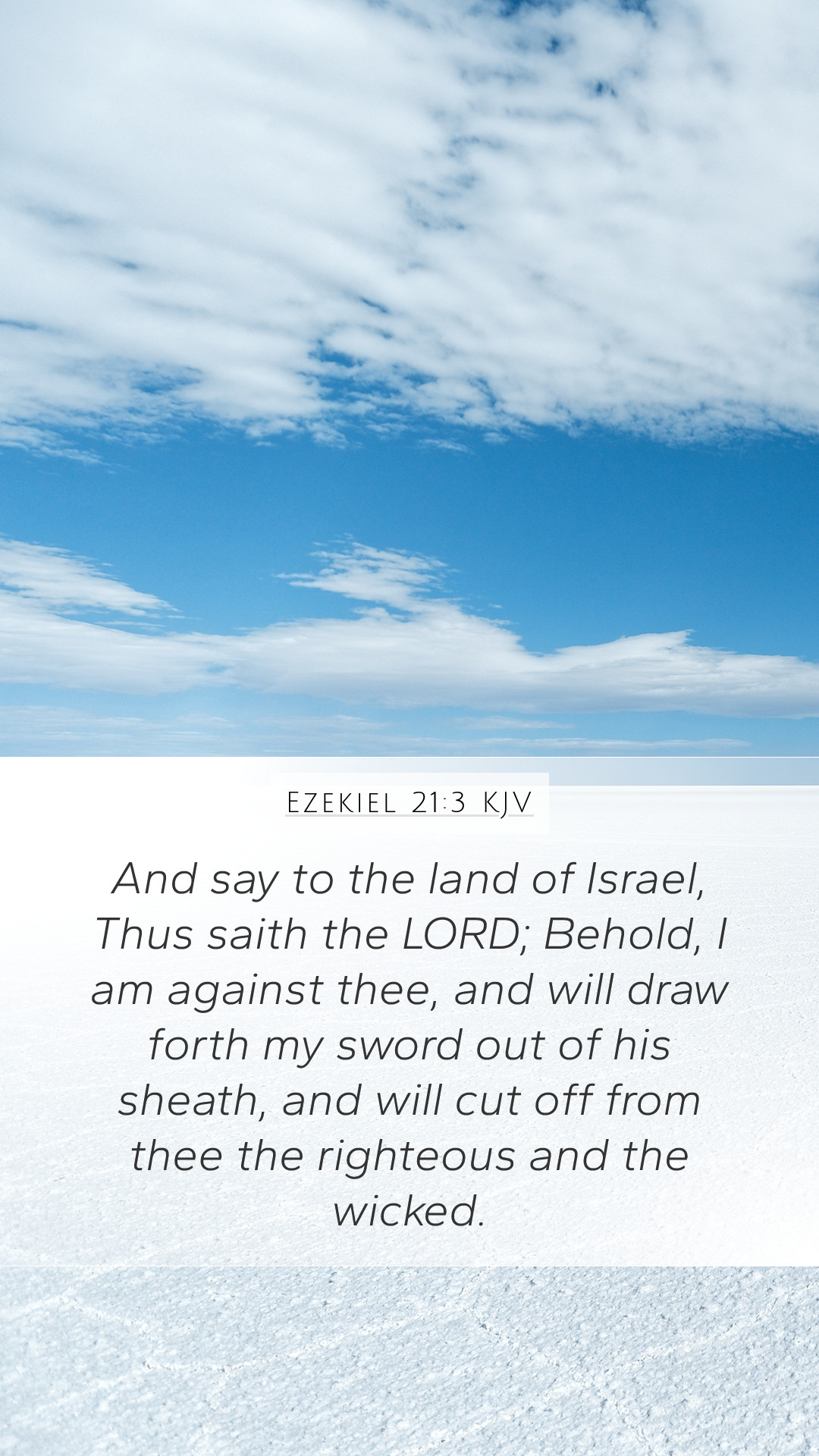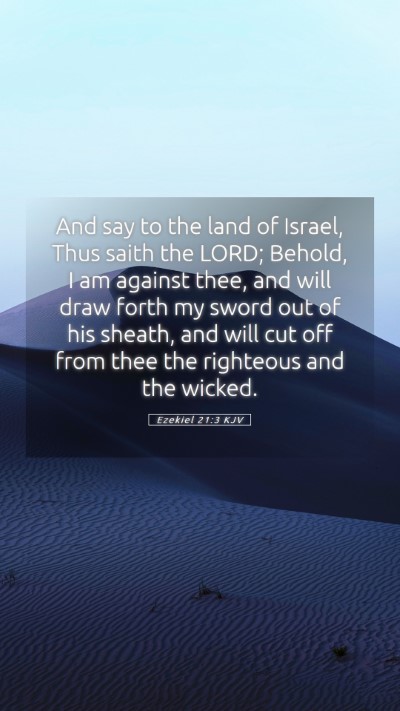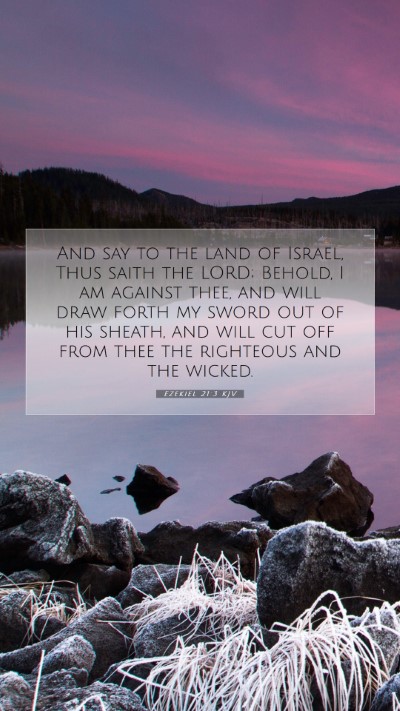Bible Verse Meaning: Ezekiel 21:3
Ezekiel 21:3: "And say to the land of Israel, Thus saith the Lord; Behold, I am against thee, and will draw forth my sword out of his sheath, and will cut off from thee the righteous and the wicked."
Overview
This verse, addressed directly to Israel, expresses God’s fierce judgment against His people for their disobedience. The imagery of the sword being drawn symbolizes divine wrath and impending doom, indicating that both the righteous and the wicked will face consequences for the national sins of Israel.
Commentary Insights
-
Matthew Henry:
Henry emphasizes the context of God's warning. He notes that Ezekiel is to declare God's fierce intentions towards Israel, reflecting God's holy displeasure over persistent sin. The drawing of the sword represents both impending judgment and a call to repentance. Henry mentions the significance of the righteous being included in judgment, suggesting that the presence of the righteous does not exempt a nation from disciplinary actions when it collectively forsakes God's law.
-
Albert Barnes:
Barnes expands on the implications of God's sword, describing it as a tool of judgment that signifies a complete separation between the righteous and the wicked during tribulation. He points out that God's justice is impartial, signifying the severity of sin and its repercussions. Barnes stresses the necessity for individual responsibility, advising readers to reflect on the state of their hearts in light of communal sin. He also refers to the historical backdrop of Jerusalem's siege, underlining the urgency of Ezekiel's message.
-
Adam Clarke:
Clarke provides a detailed analysis of the meaning of 'cut off.' He explains that this phrase indicates a thorough removal of wickedness and serves as a dire warning to Israel. Clarke correlates this action to God’s justice and emphasizes that it serves as a wake-up call for repentance. He discusses the dual nature of righteousness and judgment, challenging readers to recognize that divine discipline can touch both the good and the bad to purify a nation.
Biblical Themes
- Judgment: This verse illustrates God's judgment against His people, emphasizing that sin has consequence.
- Divine Retribution: The drawing of the sword symbolizes divine retribution—a powerful image demonstrating that God will act against disobedience without partiality.
- Call to Repentance: Implicit in the message is a call to repentance and reflection on individual and national behaviors.
Cross References
- Ezekiel 18:30 - Call to Repentance
- Isaiah 1:25 - Refiner's fire as judgment
- Jeremiah 25:29 - The cup of wrath for nations
Understanding Scripture: Application
This passage challenges believers today to examine their own lives and communities. In understanding Scripture, it is critical to recognize the impact of collective sin and the necessity for personal and societal repentance. It serves as a stark reminder that God's judgment is serious and that both individuals and groups are accountable for their actions.
Conclusion
Ultimately, Ezekiel 21:3 is a clarion call for self-examination within the Christian faith. It illustrates the nature of God's holiness and justice while also serving as a foundation for understanding Biblical exegesis and scripture analysis. Believers are encouraged to engage with this verse deeply, using Bible study tools and resources to uncover its layers of meaning and application in their lives today.


